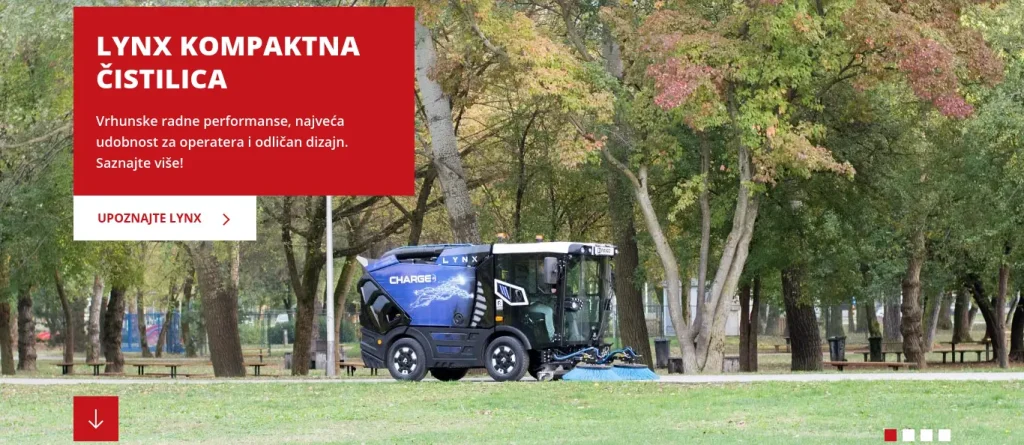As Poslovni Dnevnik/Darko Bicak writes, during a time when energy prices are continually raging, and the question of whether there will be oil and gas left at all is becoming more and more common, electric vehicles are gaining more and more importance from the ecological to end user value.
Although Croatia doesn’t engage in the mass production of vehicles, Croatian companies offering new technologies based on e-mobility and autonomy are increasingly positioning themselves on the demanding global market. Entrepreneur Mate Rimac is best known to the general public, but for years one of the leaders in the production of electric and autonomous machines for mines and demining has been Zagreb’s Dok-Ing.
Rasco, which last year introduced an electric version of its successful Lynx Charge cleaner, is slowly entering the market. Much of the company’s development is focused on e-mobility and new technologies.
According to Marko Kolar, director of development, with the emergence of electric vehicles and the strengthening of the trend of “green” vehicles that reduce greenhouse gas emissions in cities, they started thinking more and more about electric vehicles because many cities across Europe and the world have banned the entry of any fossil fuel vehicles into their centres.
“In the city centres themselves, especially in big cities, the issue of noise and pollution brought on by traffic is becoming an increasing focus. Lynx Charge, a Rasco cleaner, has almost all the systems that an electric car has, which makes it an extremely complex product.
We worked on its development for three years and it, together with the diesel version of Lynx, is the crown of the company’s 30 years of hard work. It is intended primarily for export,” said Kolar of this impressive Rasco cleaner. In recent days, Kolar was also named the best manager in the Research and Development (R&D) segment in the selection of the national association of managers – CROMA.
He added that Rasco has a developed distribution network in more than 40 markets and, since the introduction of the Rasco cleaner called Lynx Charge last October, they have delivered the first two vehicles to the Netherlands. The first feedback has been very optimistic because the vehicles met all customer expectations.
“We’d certainly be glad if the advantages of using electric vehicles were recognised by Croatian communal and utility companies, there’s interest and we’re looking forward to potential cooperation,” said Kolar. Rasco, a company from Kalinovac in Podravina, is primarily an export-oriented company that generates more than 80 percent of its revenues on foreign markets.
“We’re currently focused on European markets, but you can also find our products on the highways and streets of Canadian, Israeli, Chinese and Australian cities. European markets are currently most active in replacing vehicles with internal combustion engines with alternative propulsion, so most orders for Lynx Charge Rasco cleaners currently come from Europe. That said, we aren’t neglecting other global markets from which more and more inquiries for electric vehicles are arriving either. The Lynx Charge is an ideal product for entering the markets of North and South America and Asia because it isn’t accompanied by the restrictions related to the homologation of internal combustion engines,” explained Kolar.
They noted from Rasco that Lynx and Lynx Charge belong to the class of compact vacuum cleaners, and the estimated size of the European market for this type of machine is at the level of 3000 pieces per year.
The vast majority of the market is still made up of diesel-powered cleaners, but there has been a noticeable increase in interest in electric-powered cleaners. The Lynx Charge Rasco cleaners, they say, have an advantage over competitors because Lynx has been conceived from the very beginning to be a vehicle with two types of drive, without compromising on efficiency, comfort and autonomy.
They emphasised that they wouldn’t want to count their chickens before they hatch and try to predict further electrification trends as we move forward, but they think that the question is not whether electric cleaners will take over dominance over other types of drives in this class of utility vehicles, but whether it will happen in three, four or five years.
Rasco will certainly have a dog in that fight because, as they themselves pointed out, their development projects are a reflection of the harmonisation of unfolding market needs, high flexibility, quick adjustments and this gives them the opportunity to respond to very dynamic market conditions.
For more, check out Made in Croatia.









